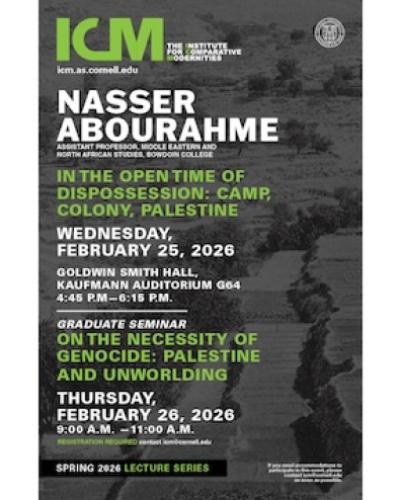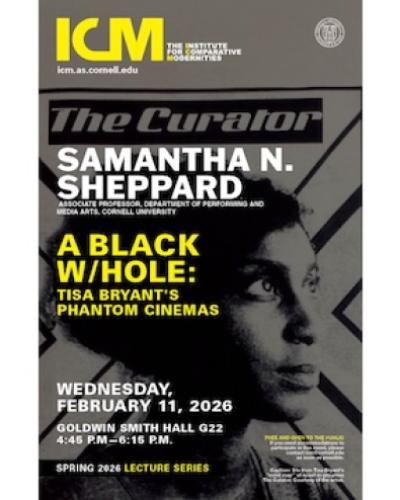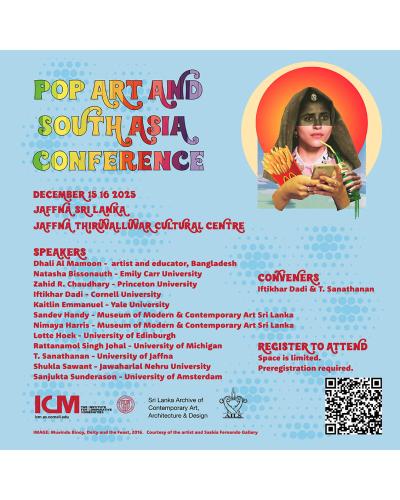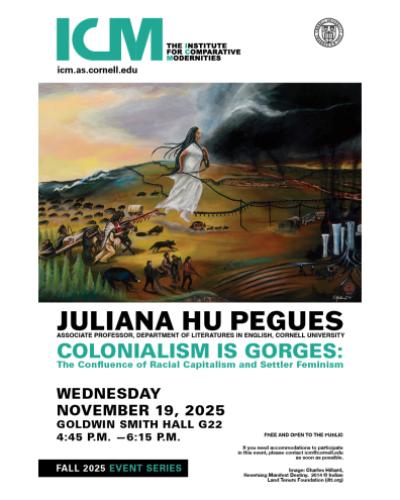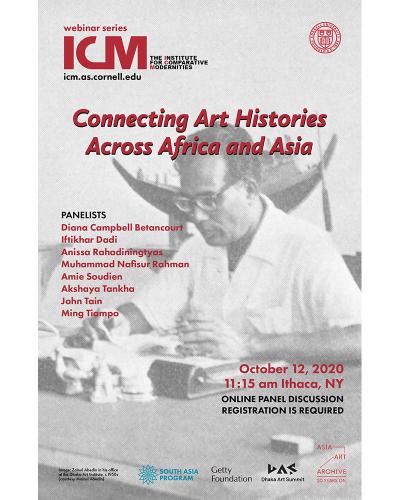Connecting Art Histories Across Africa and Asia
October 12, 2020, 11:15AM EDT (New York) on Zoom
View a recording of this event HERE
This presentation reflects on Connecting Modern Art Histories in and across Africa, South and Southeast Asia (MAHASSA) project, which brought together a team of international faculty and emerging scholars to investigate the cultural histories of these regions. Shaped by shared developments, these regions are marked by similar experiences that include the rise of modern art practices associated with the withdrawal of colonialism and the consolidation of nationalism, the founding of institutions such as the art school and the museum, and increasing exchange with international metropolitan centers via travel and the movement of ideas through publications and exhibitions. MAHASSA emphasized a connected and contextualized approach to better understand both common developments as well as divergent trajectories, and included two intensive 10-day workshops, Hong Kong (Aug 2019), and Dhaka (Feb 2020).
MAHASSA is a partnership between Asia Art Archive, Dhaka Art Summit, and Cornell University’s Institute for Comparative Modernities, and has been generously supported by Getty Foundation’s Connecting Art Histories initiative.
For more details on MAHASSA, see https://www.past.dhakaartsummit.org/connectingarthistories
Presenters include:
Diana Campbell Betancourt is a Princeton educated American curator working in South and Southeast Asia. Since 2013 she has served as the Founding Artistic Director of Dhaka-based Samdani Art Foundation and is Chief Curator of the Dhaka Art Summit, leading the 2014, 2016, 2018, and 2020 editions.
Iftikhar Dadi is Associate Professor and Chair of Cornell University’s Department of History of Art, Director of the South Asia Program, and Board Member of the Institute for Comparative Modernities. He researches art from a global and transnational perspective, with emphasis on questions of methodology and intellectual history.
Anissa Rahadiningtyas is a PhD candidate in the Department of History of Art at Cornell University. She received an MA from the Faculty of Art and Design, Bandung Institute of Technology in Indonesia. Her primary research area is the history of modern and contemporary art in Indonesia.
Muhammad Nafisur Rahman is a PhD student in Architecture at the College of Design, Architecture, Art, and Planning, University of Cincinnati, and Adjunct Faculty in the School of Design. His research focuses on Dhaka’s urban fabric and its complex visual amalgamation of building facades, images, symbols, and letterforms.
Amie Soudien is a curator, researcher and art writer from Cape Town, South Africa. Her interests include histories of slavery in Cape Town, archival studies, gender, sexuality, and emerging artists from Africa and the diaspora. Soudien is currently a PhD student at the University of the Witwatersrand.
Akshaya Tankha is an art historian working on modern and contemporary South Asian art and visual culture, with a focus on aesthetics and politics, postcolonialism, and Indigeneity in India. Tankha completed his PhD from the University of Toronto and will begin a postdoctoral fellowship at Yale University in November 2020.
John Tain is Head of Research at Asia Art Archive, where he leads a team in Hong Kong, New Delhi, and Shanghai. In addition to MAHASSA, he has organized several exhibitions, and is a series editor for Afterall Exhibition Histories. He was previously a curator at the Getty Research Institute.
Ming Tiampo is Professor of Art History, and co-director of the Centre for Transnational Cultural Analysis at Carleton University. She is interested in transcultural models and histories that provide new structures for understanding and reconfiguring the global. She has published on Japanese modernism, global modernisms, and diaspora.
Cornell University is committed to providing universal access to all of our events. Please contact icm@cornell.edu to request disability accommodations. Advance notice is necessary to arrange for some accessibility needs.
Image: Zainul Abedin in his office at the Dhaka Art Institute, c. 1950s (courtesy Mainul Abedin)

